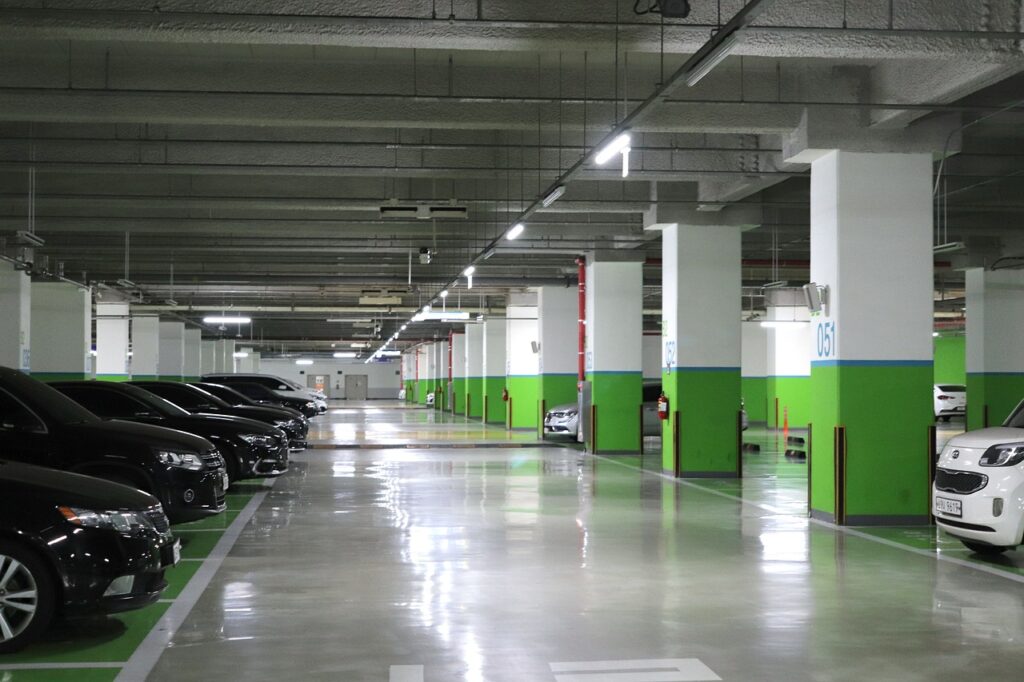Drive With Confidence: Essential Dos and Don’ts of Utilizing Handicap Parking Spaces

Handicap parking spaces are crucial resources designed to facilitate accessibility for individuals with disabilities. Their misuse or improper utilization can create significant challenges for those who rely on them, though. Today we’re exploring handicap parking etiquette – essential dos and don’ts of utilizing handicap parking spaces, ensuring that everyone can navigate these areas with confidence and respect.
Understanding Handicap Parking Regulations
Before delving into the dos and don’ts of handicap parking, it’s crucial to have a solid grasp of the regulations governing these spaces. Handicap parking regulations vary by region – for example, disability parking guidelines in Alaska may be slightly different from ADA parking regulations Wisconsin.
These regulations generally mandate that designated spaces be reserved exclusively for individuals with disabilities who possess valid permits. They typically outline the requirements and guidelines for using handicap parking spaces, including eligibility criteria for obtaining handicap parking permits, the proper display of permits, and penalties for misuse or violations. These designated spaces are typically located near building entrances and are marked with the International Symbol of Access.
By familiarizing yourself with handicap parking regulations, you can navigate parking facilities confidently, adhere to legal requirements, and contribute to creating a more inclusive environment. Understanding these regulations also helps prevent misunderstandings and promotes respect for accessibility rights within the community.
Dos of Handicap Parking
1. Obtain a Valid Handicap Parking Permit
If you have a qualifying disability, ensure that you possess a valid handicap parking permit issued by the appropriate authorities. This permit should be prominently displayed when utilizing handicap parking spaces.
2. Park Only in Designated Spaces
Always park in designated handicap parking spots and avoid occupying them unless you have a valid permit. This ensures that these spaces remain available for those who truly need them.
2. Utilize the Access Aisles
Access aisles adjacent to handicap parking spaces are designated for wheelchair access. Avoid parking in these aisles or blocking them with your vehicle to ensure accessibility for individuals with mobility devices.
Don’ts of Handicap Parking
1. Never Misuse Handicap Parking Spaces
Misusing handicap parking spaces, such as parking without a valid permit or using someone else’s permit unlawfully, is not only unethical but also illegal. It can result in fines, penalties, and even the towing of your vehicle.
2. Avoid Parking for Convenience
Handicap parking spaces are reserved for individuals with disabilities who require closer proximity to entrances for accessibility reasons. Avoid parking in these spaces solely for convenience when other parking options are available.
2. Don’t Block Access Aisles
Access aisles are crucial for individuals using mobility devices to enter and exit their vehicles safely. Avoid parking in a manner that obstructs these aisles, as it hinders accessibility for those who need it most.

Handicap Parking Etiquette
Handicap parking etiquette encompasses a set of respectful behaviors and considerations aimed at promoting accessibility, a more inclusive and accessible environment, and inclusivity for individuals with disabilities.
Here are some etiquette guidelines to keep in mind:
Respect Reserved Spaces:
Respect the needs of those who require accessible parking. Treat handicap parking spaces with the same respect as you would any other reserved area. Avoid using them unless you have a valid permit.
Be Mindful of Others:
Recognize that individuals with disabilities rely on handicap parking spaces for accessibility. Be considerate and avoid actions that may limit their access or inconvenience them like blocking access aisles or ramps.
Report Misuse:
If you witness the misuse of handicap parking spaces, consider reporting it to the appropriate authorities. By taking action, you can help ensure that these spaces remain available for those who need them most.
Practicing patience, empathy, and courtesy towards individuals with disabilities when navigating parking facilities also demonstrates a commitment to promoting accessibility and equality for all members of the community. By adhering to handicap parking etiquette, drivers can contribute to creating a more inclusive and supportive environment where everyone can access parking amenities with dignity and respect.
Handicap Parking Misuse Consequences
Handicap parking misuse, whether intentional or unintentional, can have significant consequences for both individuals with disabilities and the community at large. Understanding these consequences is crucial for promoting compliance with handicap parking regulations and ensuring that designated spaces remain available for those who truly need them.
One of the most immediate consequences of handicap parking misuse is the denial of access to individuals with disabilities who require these spaces. When unauthorized vehicles occupy handicap parking spots, individuals with mobility impairments may be forced to park farther away from their destination, making it difficult or even impossible for them to access essential services, businesses, or facilities.
The consequences of misusing handicap parking spaces can be severe, both legally and ethically. Some potential consequences include:
Fines and Penalties:
Many jurisdictions impose significant fines for parking illegally in handicap spaces or misusing handicap parking permits. Parking in a designated handicap space without a valid permit is often considered a serious offense, punishable by fines ranging from hundreds to thousands of dollars. Repeat offenders may face even harsher penalties, including license suspension or vehicle impoundment.
Towing:
Vehicles found in violation of handicap parking regulations may be subject to towing at the owner’s expense.
Legal Action:
In some cases, individuals caught misusing handicap parking spaces may face legal action, including citations and court appearances.
Beyond legal consequences, there are also social and ethical implications associated with handicap parking misuse. Violators risk damaging their reputation and facing public scrutiny for their disregard of accessibility rights and regulations. Businesses or establishments where handicap parking misuse occurs may also face backlash from customers, advocacy groups, and regulatory authorities, leading to reputational damage and potential legal liabilities.
Handicap parking misuse can also perpetuate discrimination and stigma against individuals with disabilities. It sends a message that their needs and rights are not valued or respected, contributing to feelings of marginalization and exclusion within the community.

Tips For Utilizing Handicap Parking Spaces Safely
To ensure the safe and proper utilization of handicap parking spaces, consider the following tips:
- Park within designated boundaries and avoid encroaching on adjacent spaces or access aisles.
- Be mindful of signage and markings indicating reserved parking areas and access aisles.
- If you encounter a full handicap parking lot, refrain from creating makeshift parking spaces or parking in non-designated areas.
- When exiting your vehicle, be cautious of nearby traffic and pedestrians, especially in busy parking lots.
- Respect Access Aisles: Access aisles, often marked with diagonal stripes adjacent to handicap parking spaces, are designated areas for wheelchair users to enter and exit their vehicles safely. It’s essential never to park, block, or use these aisles for any purpose other than their intended use, as doing so can hinder accessibility and pose safety risks.
- Mind Your Surroundings: When parking in a handicap spot, be aware of your surroundings and take caution while maneuvering your vehicle. Ensure that there are no obstructions or hazards in the area, such as curbs, ramps, or pedestrian pathways, that could impede accessibility or cause accidents.
- Use Accessibility Features: Take advantage of accessibility features such as ramps, curb cuts, and designated pathways when navigating parking lots and accessing facilities. These features are designed to enhance mobility and ease of access for individuals with disabilities, so utilizing them appropriately contributes to a safer and more inclusive environment for everyone.
- Display Permit Clearly: If you have a handicap parking permit, ensure that it is displayed prominently and visibly in your vehicle. This helps parking enforcement officials and other drivers identify your eligibility to park in designated handicap spaces, reducing the likelihood of misunderstandings or disputes.
- Be Patient and Considerate: When utilizing handicap parking spaces, practice patience and consideration towards others who may also require accessible parking. Avoid rushing or engaging in behaviors that could compromise safety, such as double parking or parking in non-designated areas.
- Report Misuse: If you observe misuse or abuse of handicap parking spaces, such as unauthorized vehicles parking in designated spots, report it to the appropriate authorities promptly. By taking action against misuse, you help uphold accessibility rights and ensure that handicap parking spaces remain available for those who truly need them.
- Educate Others: Spread awareness about the importance of utilizing handicap parking spaces safely and respectfully. Educate friends, family members, and colleagues about handicap parking etiquette and the consequences of misuse, encouraging them to be mindful and considerate when parking in designated spots.
***
By adhering to the dos and don’ts of utilizing handicap parking spaces, we can promote accessibility, respect, and inclusion for individuals with disabilities. Remember to obtain a valid handicap parking permit, park only in designated spaces, and be mindful of others’ accessibility needs.
By driving with confidence and following handicap parking regulations, we can create a more equitable environment where everyone has equal access to essential amenities and services.
Whether you already have a Hawaii handicap parking placard or are about to start your New Hampshire handicap parking application, we’ve got tips for parking properly throughout the whole country. Check out the Dr Handicap blog today!
Featured image by Florian Pircher from Pixabay.